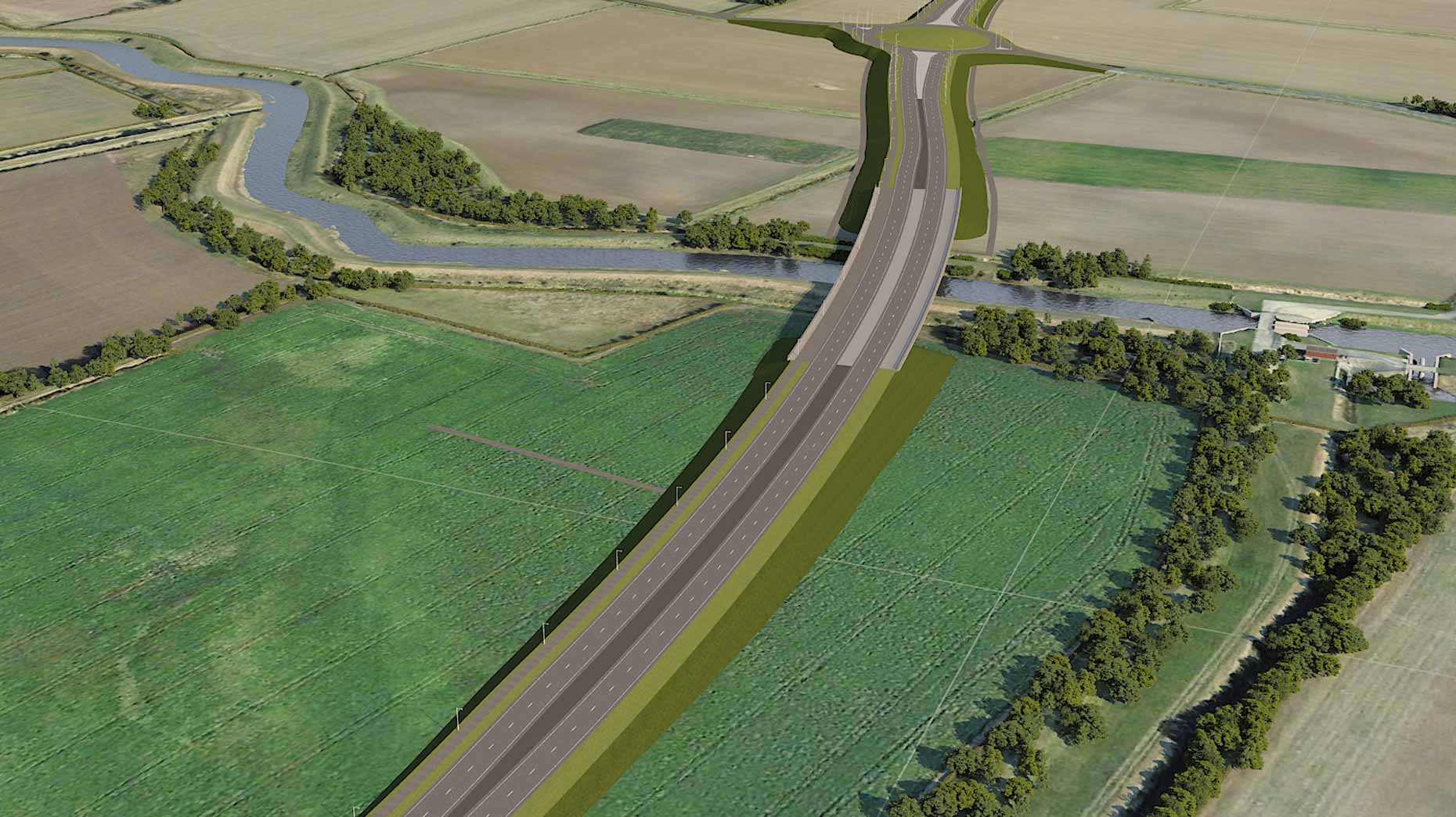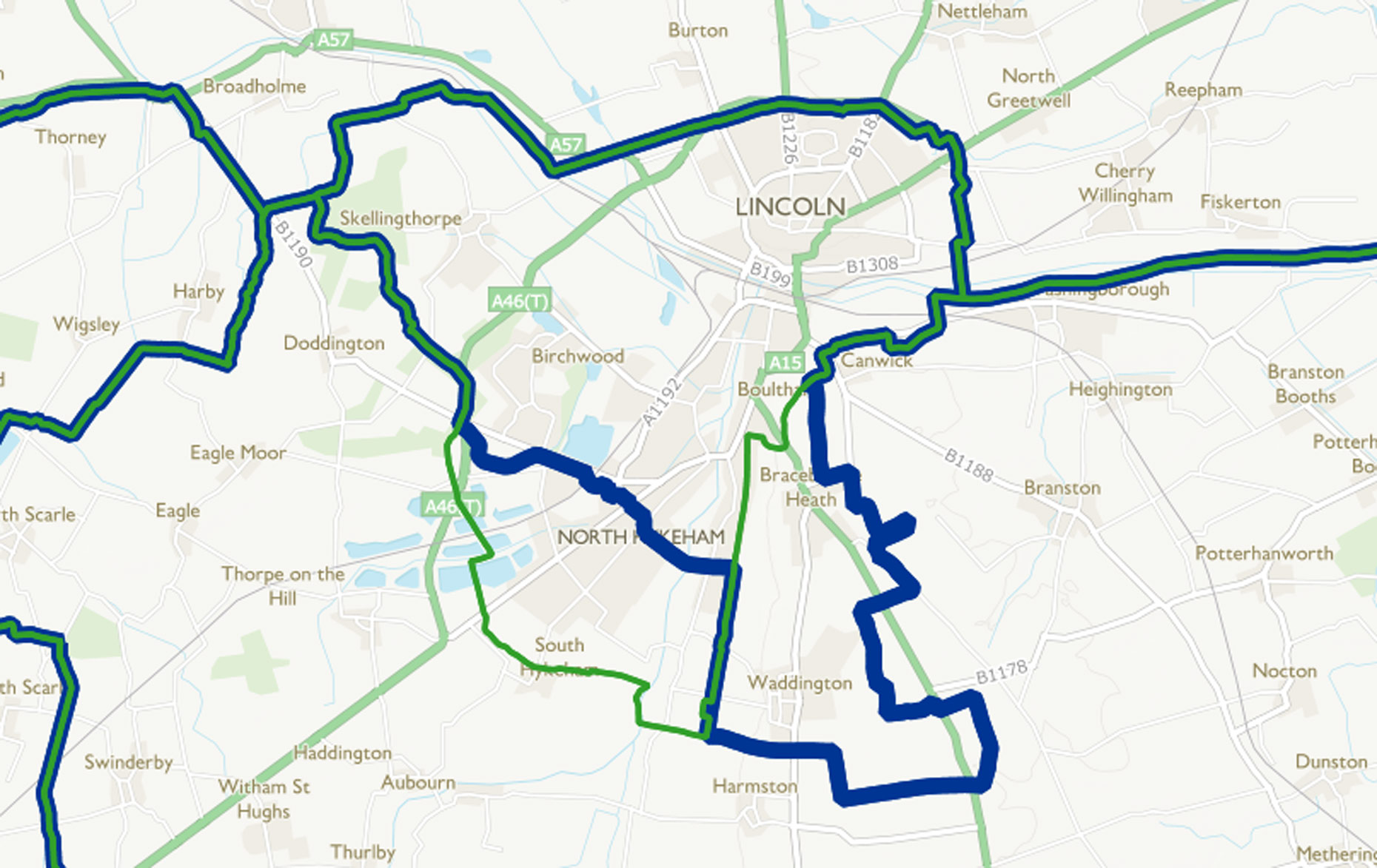News that plans are well on to deliver a North Hykeham Relief Road, subject to government funding, are to be welcomed. I am especially pleased to see the words ‘North Hykeham’ mentioned as opposed simply the Southern Bypass. As someone, who more or less based a local political career from the mid 1980s on trying to deliver this scheme, including helping the North Hykeham Town Council organise the Petition in 1995/6, which attracted over four and a half thousand signatures, for what was then called the Eastern Bypass from the A46 to the A158 and now that my political career is over, I just hope that I live long enough to see it actually happen.
As a member of the Lincolnshire County Council from 2001 to 20017 I am well aware of the arguments regarding what kind of new roads greater Lincoln needs, as I am equally aware of what was possible, given the parlous state of central and local government finances. It is to counter some of the ill informed views expressed by some contributors to The Lincolnite that I feel it might be a good idea if someone, who has been involved both directly and indirectly in roads planning for a number of years, put the record straight.
Much has been made of the desire to make the North Hykeham Relief Road a dual rather than single carriageway. I too would prefer the former. However, the then Department of Transport was not won over by this argument when plans were first submitted by the County Council around a decade ago for the Eastern Bypass. I know that money was tight then, and even more so today; but the Department’s argument then, whether you believe it or not, was that they didn’t see the proposed road as having the same strategic importance for the East Midlands as, for example, the A46 Western Relief Road, which is an important link to the North Sea ports. The money saved, they argued, could be spent to fund schemes elsewhere. So we ended up unfortunately with a single carriageway Eastern Relief Road. I tended to agree with this argument at the time – in fact, I still do – and, as they say, half a loaf was better than none at all.
Therefore I am of the opinion that any spare cash should be spent on dualing those bits of the current A46 Western Relief Road, that are still single carriageway. Some readers may not be aware that, back in the 1980s, the then Ministry of Transport funded the road from what we now call Pennells roundabout to the A15 Riseholme Road. The rest, from there to the A158 Wragby Road, was funded by the County Council. It’s this stretch that the council might consider for urgent dualing while it works on Highways England, which is still in charge of the bit whose delivery its predecessor largely financed, which, in fairness, could prove a bit more tricky logistically as well as financially. Dualing the A15 north of Lincoln up to the M180 would be the icing on the cake; but that’s not in the frame at the moment.
So, if it were a choice between a dual carriageway North Hykeham Relief Road or a single carriageway North Hykeham Relief Road together with a fully dualled A46 Western Relief Road/Bypass, I would opt for the latter. Admittedly that choice is not on the table at the moment, nor is the offer of any more government funding. However, if funds could be made available, I’d happily support dualling the lot, including later the Eastern Relief Road, which is due to open in two years time in single carriageway form.
John was a councillor for thirty years, finally retiring in 2017. A schoolteacher by profession, he served on the North Hykeham Town Council (1987-2011), the North Kesteven District Council (1987-1999, 2001-2007) and the Lincolnshire County Council (2001-2017). He was also a County Council member of the former Lincolnshire Police Authority for eight years until standing down in 2009. In 1997 he was the Lib Dem Parliamentary candidate for Sleaford and North Hykeham. He is currently not a member of any political party.







